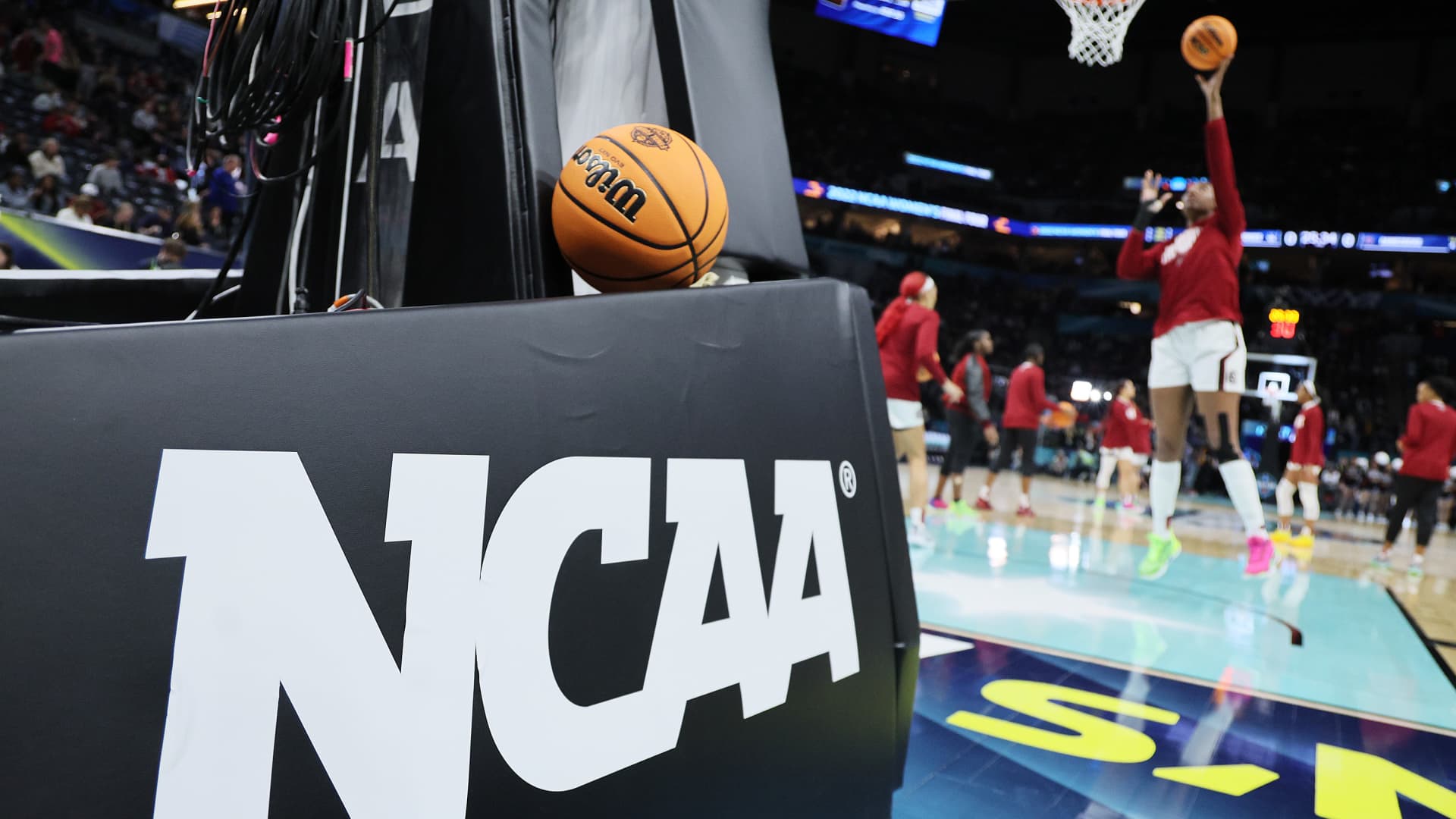The NCAA logo and a game ball as the South Carolina Gamecocks warm-up before the game against the UConn Huskies during a Women’s Basketball Tournament National Championship game at Target Center.
Andy Lyons | Getty Images Sport | Getty Images
A U.S. judge on Friday granted final approval to a $2.8 billion settlement with the National Collegiate Athletic Association that will allow schools for the first time to compensate student athletes for past and future commercial use of their names, images and likenesses.
The settlement, approved in a ruling by U.S. District Judge Claudia Wilken in the Oakland, California, federal court, resolves long-running litigation between the NCAA and student athletes.
“Despite some compromises, the settlement agreement nevertheless will result in extraordinary relief for members of the settlement classes,” Wilken wrote. She said the deal will “permit levels and types of student-athlete compensation that have never been permitted in the history of college sports.”
The ruling marked a “historic day for college sports and the rights of athletes,” the lead attorneys for the plaintiffs, Steve Berman and Jeffrey Kessler, said in a statement.
In a statement, NCAA President Charlie Baker welcomed the judge’s ruling.
“Student-athletes will benefit from the rich opportunities they enjoy now, plus far more scholarship opportunities, landmark financial benefits and a streamlined NCAA to support them,” Baker said.
The NCAA denied any wrongdoing in agreeing to settle.
The deal faced dozens of objections that it didn’t adequately compensate athletes or was unfair in other ways. Objectors to the deal now can appeal to the San Francisco-based 9th U.S. Circuit Court of Appeals.
The settlement, covering hundreds of thousands of current and former students since 2016, resolved three lawsuits that claimed NCAA rules barring payments to athletes violated U.S. antitrust law. The $2.8 billion will cover past damages.
The plaintiffs’ lawyers previously estimated the deal would provide tens of billions of dollars to class members over the next 10 years. Schools will be allowed to pay athletes from funds that universities receive from broadcasts and other commercial sources.
The NCAA in April convinced a federal judge in Manhattan to dismiss a lawsuit seeking compensation for thousands of former student-athletes who played team sports in college prior to 2016. Those students have filed an appeal.





